The best movies and TV shows about business we watched in 2019
It was a memorable year for the movie and television business. Disney and Apple escalated an all-out war between the streaming services, while director Steven Spielberg plotted a battle of his own, seeking to ban all their movies from the Oscars.
That’s show business — but what about the year in business shows?
The Yahoo Finance staff is here to highlight the best shows and movies of 2019 that focused on anything and everything business-related. As you’ll see, that can mean high-speed trading; it can also mean automaking or pornography.
HBO’s (T) “Succession” flourished on our screens and in our memes, while two near-simultaneous Fyre Festival documentaries — one from Hulu and the other from Netflix (NFLX) — briefly made that scam the talk of every party, almost two years after the notorious music festival that never was. Filmmaker Alex Gibney floored us with chilling footage of Theranos founder Elizabeth Holmes, and “Silicon Valley” returned one last time to help us laugh it off.
Even Michelle and Barack Obama got into the act, helping produce a documentary about the revival of a shuttered Ohio factory — with a twist.
These are our favorite business movies and TV shows of 2019.
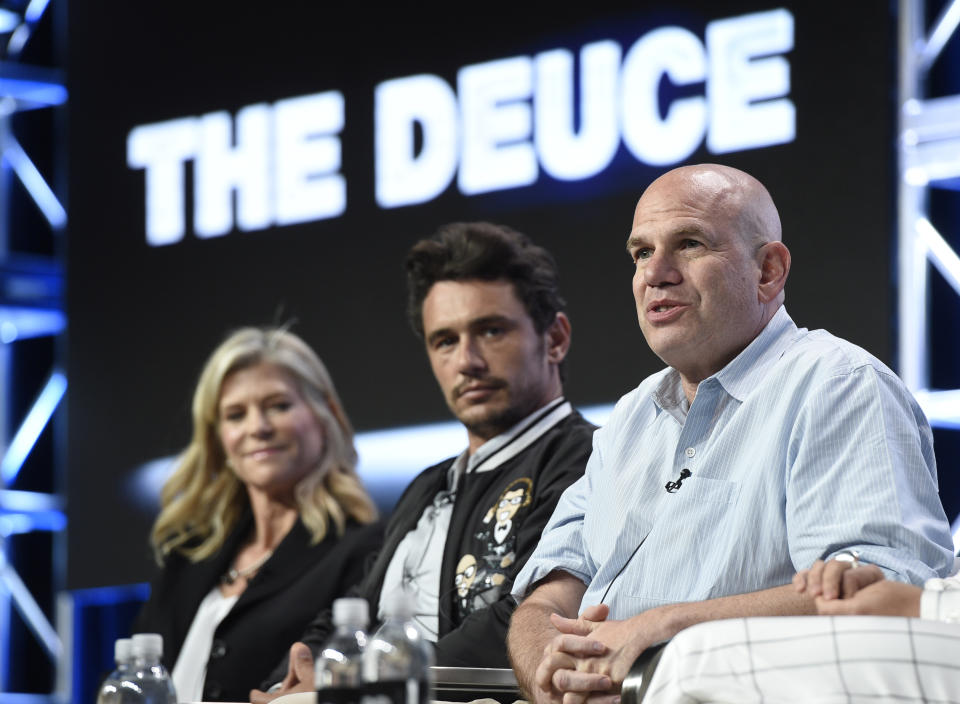
“The Deuce”
At first blush, (pun intended), “The Deuce” does not appear to be much about business. The three-season HBO series — run by highly-regarded showrunner David Simon of the “The Wire” fame — is about how prostitutes on 42nd St (hence “the deuce”) in New York, moved from streetwalking to the world of porn and outcalls. But of course money and business are at the very core of this. Leaving aside that we’re talking about the world’s oldest profession, the driving force behind this evolution — the show takes place in the 1970s and 1980s — is big money developers looking to gentrify Times Square. Interestingly, new technology plays a part here, too. Pagers allow the call girls to work on their own, eschewing pimps.
Like all of Simon’s shows, “The Deuce” is rich in characters who are never defined in black and white terms. All manner of subjects are delved into; from women’s rights, to AIDS, drug abuse, and racism. But money is always just below the surface. Also typical, “The Deuce” starts slowly but builds and builds. When the show hits its finale, you wish there were more.
—Andy Serwer, Editor-in-Chief
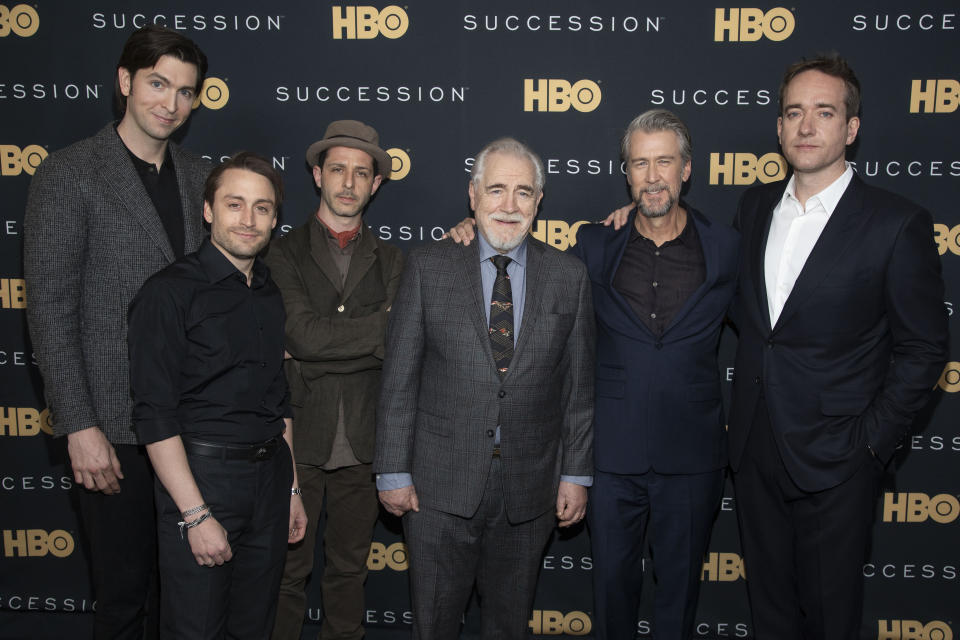
“Succession”
Corporations often look, well, corporate. But they aren’t always. This is one of the lessons from HBO's “Succession,” now in its second season, which chronicles the Roy family and its media and entertainment empire, Waystar Royco. It reminds the world that behind the official veneer of discipline and decisions based on providing shareholder value, there is sometimes chaos, debilitating ego, and jaw-dropping incompetence. It may be no good in real life, for example in the case of the Murdoch family, which seems to be partly the inspiration for this story. But in fiction, it’s a ton of fun to watch all these characters play around at the top, using their company as a sandbox. Especially because they're characters that are easy to love to hate.
—Ethan Wolff-Mann, Senior Writer
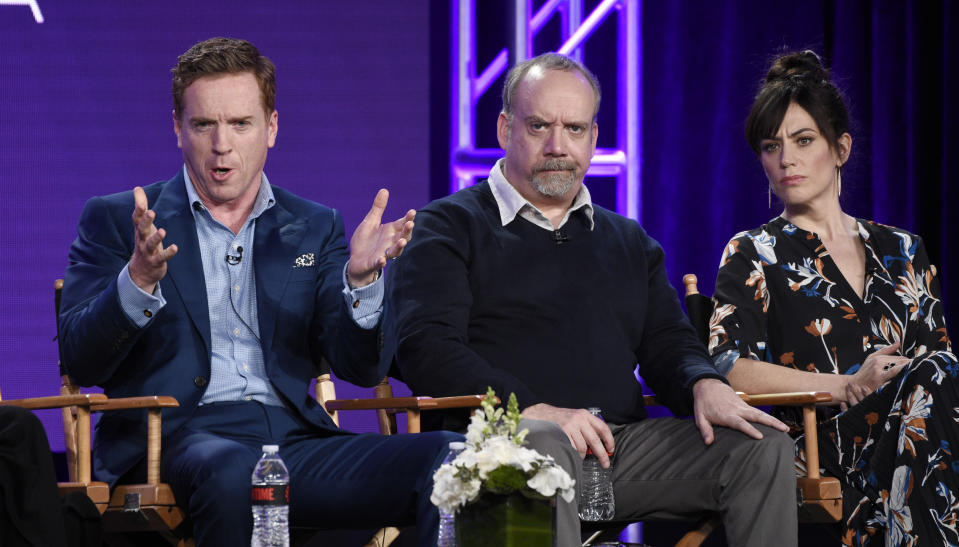
“Billions”
Brian Koppelman and David Levien continue to create gold with Showtime's “Billions,” which began as the story of a hedge fund billionaire and the U.S. Attorney chasing him down. If you want a glimpse into the inner-workings and drama of New York City high finance and politics, this is the show for you. Season 4 was another brilliant masterpiece. I can't wait for season 5. It's a must-watch, and I know some of the biggest names in finance will be tuning in.
—Julia La Roche, Correspondent
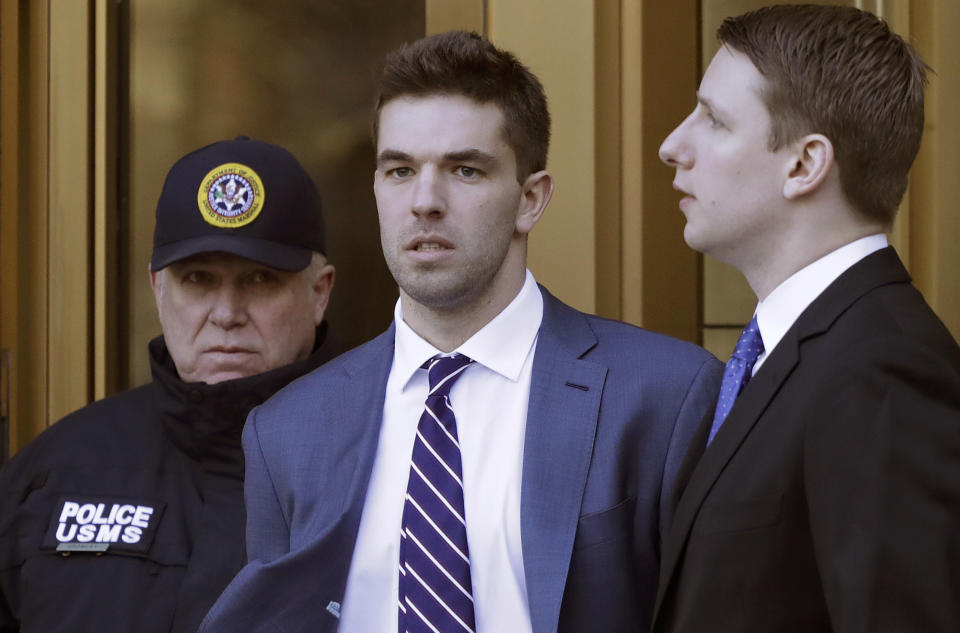
“Fyre Fraud” & “Fyre: The Greatest Party That Never Happened”
America has long since moved on to newer startup scandals like WeWork's IPO collapse, but back in January two dueling documentaries about Fyre Festival hit Hulu and Netflix just four days apart. Hulu's was called "Fyre Fraud," Netflix's doc was called "Fyre." The timing of both films left us forever unable to talk about one without mentioning the other, and many people chose to watch both movies.
Those films tell the story of a music festival in the Bahamas that descended into chaos in 2017. The Fyre Fest story is another now-ubiquitous example of so many trends we see in startup land these days and Silicon Valley especially, even though this wasn't a tech company: "fake it til you make it"; "move fast and break things"; and how celebrity influencers can irresponsibly pump untested or unproven products, organizations, or brands to their devoted followers.
If the actual story wasn't entertaining enough, controversies about the two movies created additional fascination. Hulu's movie made key use of Oren Aks, a designer from Jerry Media, the social media firm that worked on Fyre Festival and later fired Aks; Netflix took criticism when people discovered its film was produced by Jerry Media. Later, the legal drama of the festival entity suing both Hulu and Netflix added yet another layer to the whole story.
I preferred the Hulu doc and thought it better told the story of Fyre Fest and creator Billy McFarland's delusions and lies, but the Netflix doc did benefit from one extremely memorable scene in which festival producer Andy King shares one of the more over-the-top tasks McFarland asked of him to try to save the festival. For me, the takeaway from the two films was that influencer culture is extremely dangerous and needs to be stopped — and yet it still won't go away.
—Daniel Roberts, Senior Writer
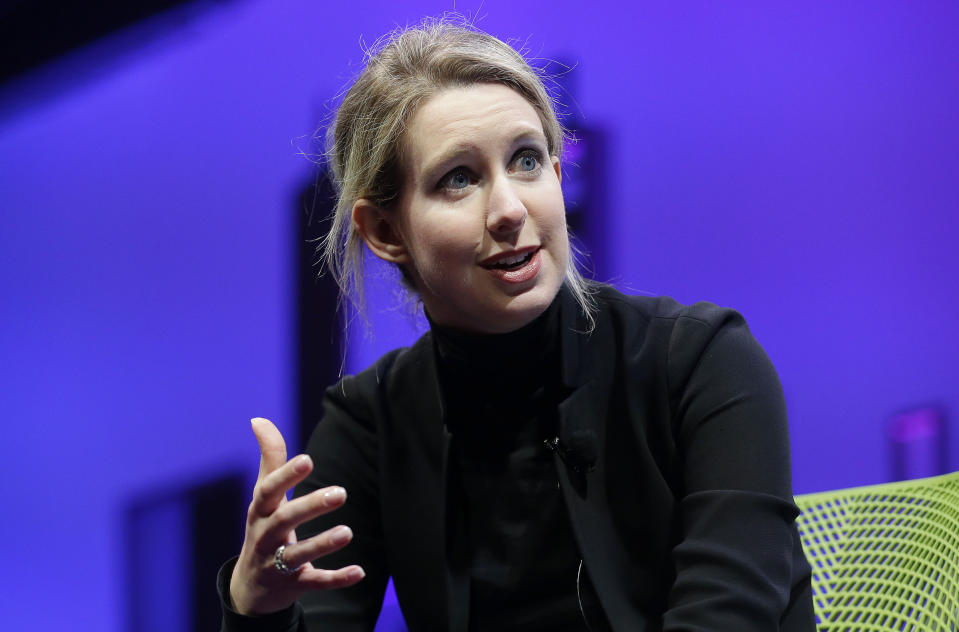
“The Inventor: Out for Blood in Silicon Valley”
Documentary filmmaker Alex Gibney excels at dramatizing corporate greed, notably in his film about Enron — and more recently, in his series “Dirty Money” on Netflix (which I binge watched in the middle of the night with my then-newborn).
This year, Gibney told perhaps one of the most dramatic tales of a corporate downfall ever: that of notorious Stanford dropout Elizabeth Holmes. The film came after John Carreyrou of the Wall Street Journal wrote a series of damning articles about Holmes’s company, Theranos, which once claimed to be able to conduct hundreds of diagnostic tests from a few drops of blood. That reporting led to Carreyrou’s critically acclaimed book, “Bad Blood.”
I tore through “Bad Blood” and was riveted by Gibney’s film, “The Inventor” — which featured eye-opening footage of Holmes in the Theranos offices as well as interviews with many key stakeholders including a young whistleblower who helped blow open the Theranos scandal.
“The Inventor” also interviews Roger Parloff, a veteran reporter (and now Yahoo Finance contributor) who wrote a cover article about Holmes for Fortune magazine only to write an explanation later called “How Theranos misled me.” In a scene that depicts Parloff’s anger over Holmes’s lack of accountability, he recounts trying to track her down after the Wall Street Journal reporting came out. She was tied up being inducted into the Harvard Medical School Board of Fellows.
The Holmes saga is far from over, and there are more stories to be told — particularly about the backers who may have enabled her alleged fraud. But Gibney’s documentary is certainly an excellent cinematic introduction to the still-unfolding drama.
—Erin Fuchs, Deputy Managing Editor
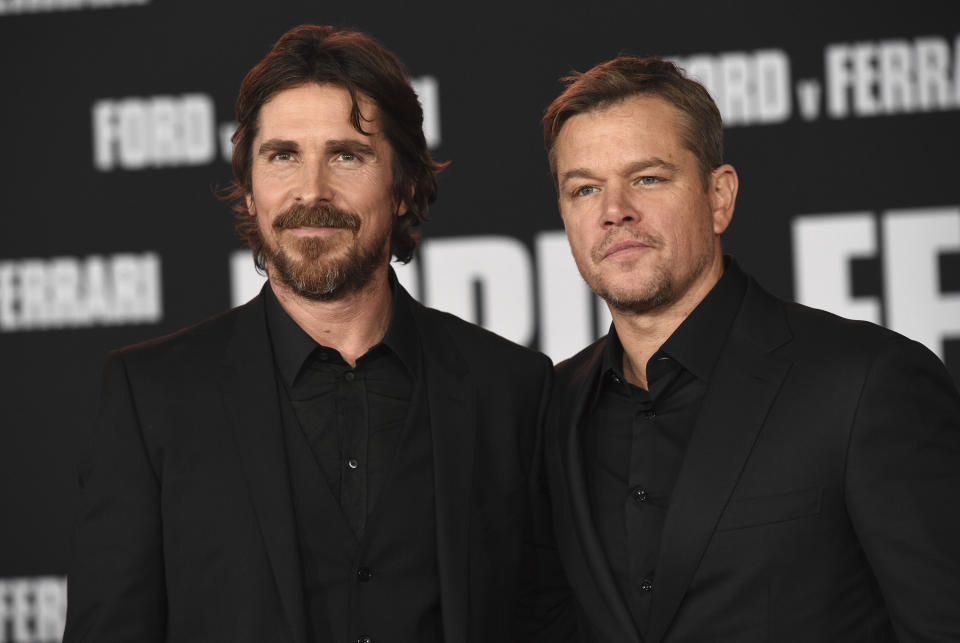
“Ford v. Ferrari”
“Ford v Ferrari” is a fun movie for the racing scenes alone (it’s definitely why I went) but underneath it’s also a memorable portrait of the corporate world in the 1960s.
James Mangold’s latest begins with a business deal gone wrong. The Ford Motor Company (F) tried to buy the nearly bankrupt Ferrari in 1963. In pitching the deal, a young Lee Iacocca (played by Jon Bernthal) goads Henry Ford II (Tracy Letts) by telling him, “Enzo Ferrari will go down in history as the greatest car manufacturer of all time.”
The deal goes spectacularly wrong. Enzo does a last-minute deal with Fiat instead and the rest of the movie is about the company getting its revenge. Ford eventually does win with the real-life 1-2-3 finish in the 1966 24 Hours of Le Mans race.
It was an era (according to the rules of the movie, at least) when even a giant corporation could be pulled kicking and screaming to “think like Ferrari” but you had to fight through plenty of corporate bureaucracy.
There’s a scene part way through when Ford takes Carroll Shelby (Matt Damon) to the window of his office to reverentially show where the company built planes for World War II. It’s a nice encapsulation of the moment being examined: the halcyon war days feel almost as distant to the movie’s characters as the mid-1960s business world feels to a modern audience. Shelby, it’s worth noting, had just finished complaining to his bosses about the red tape involved in working at Ford.
Christian Bale plays Ken Miles, the hero of the movie and Shelby's closest ally. Miles is introduced to the audience as he berates a paying customer at his garage. The real life racing legend is repeatedly derided by company executives as not fitting the Ford mold but he, in the end, is how they win.
—Ben Werschkul, Washington D.C. Producer
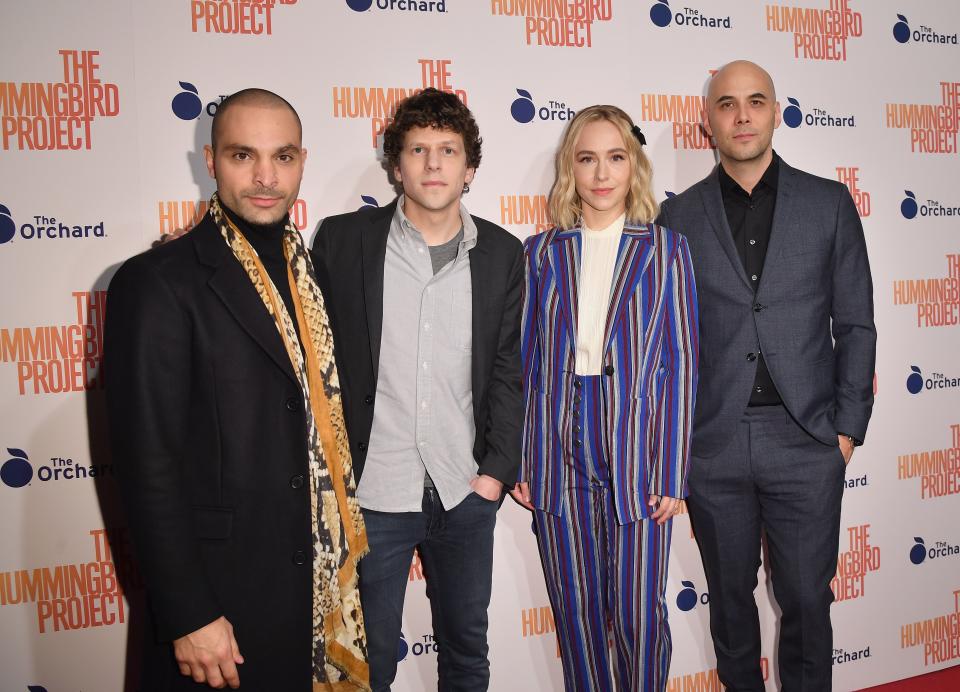
“The Hummingbird Project”
In “The Hummingbird Project,” Jesse Eisenberg plays a guy who has aspirations to elevate himself above his peers by screwing everyone he knows so he can protect an entrepreneurial venture, which he believes will make him hundreds of millions if not billions of dollars. In other words, I saw a similar story line the first time when when Eisenberg portrayed Mark Zuckerberg in "The Social Network," aka the Facebook movie.
But instead of building a Silicon Valley unicorn, Eisenberg's character Vincent Zaleski is building a Wall Street trading strategy that involves burrowing a tunnel and laying fiber-optic cable in a straight line between a data center in Kansas and a New York Stock Exchange server in New Jersey. The idea is to get information a millisecond faster than the rest of Wall Street so you can make a fortune frontrunning everyone else's trades.
It's yet another reminder that there are lots of folks on Wall Street making fortunes or attempting to make fortunes by doing something other than selling a product or service that actually benefits society in some tangible way. Again, I saw it the first time when it was called "The Social Network."
—Sam Ro, Managing Editor
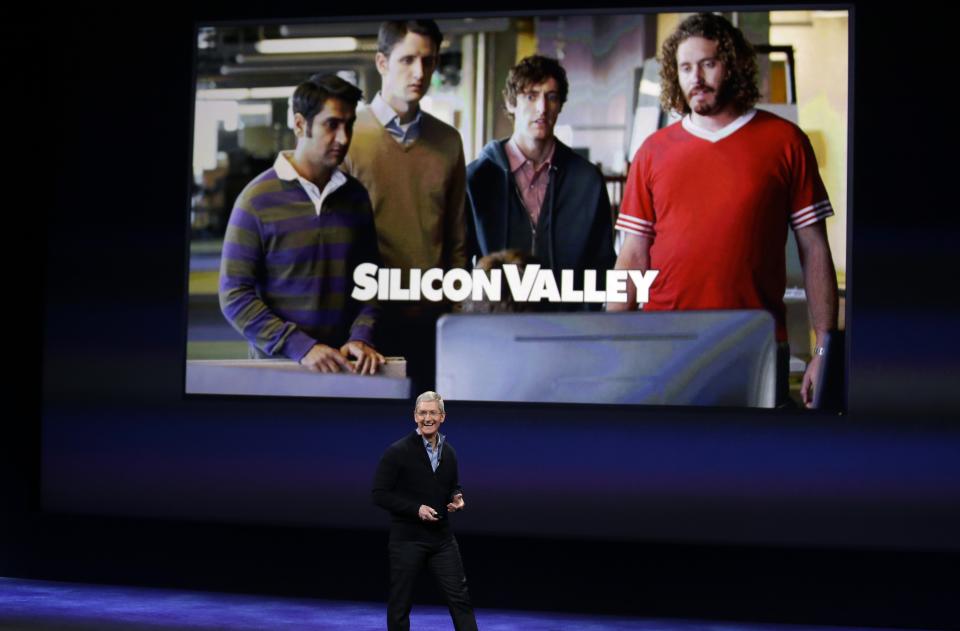
“Silicon Valley”
The hilarious final season of HBO’s “Silicon Valley” kicked off with a congressional hearing that looked eerily Mark Zuckerberg-like. Except in this case, Richard Hendricks, CEO of Pied Piper, is trying to fight against the industry trend to track, monitor and collect user data. His team is working on a new decentralized internet. Sound impossible? The goofy characters mixed with over-the-top Silicon Valley moments makes this series a must watch in 2019. A brilliantly funny take on the digital age of big data and FAANG.
—Ines Ferre, Markets Reporter
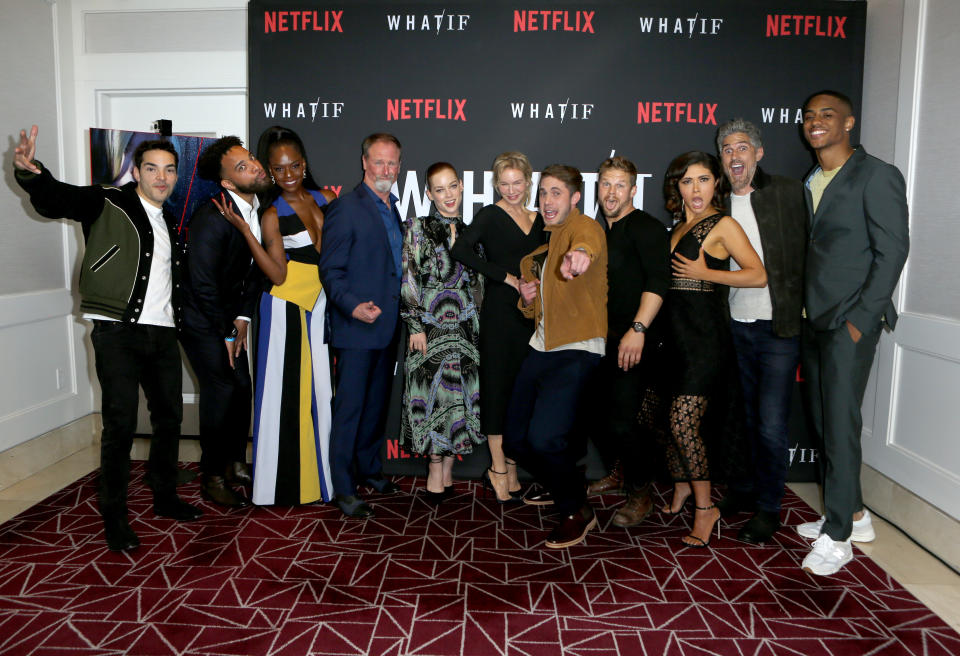
“What/If”
“What/If” stars Renee Zellweger and was created by Mike Kelley, who birthed the ABC cult hit “Revenge.” Zellweger turns in a so-bad-it’s-actually-good performance as a self-made venture capitalist who approaches a young startup founder with a proposition straight out of “Indecent Proposal.” The whole thing is really preposterous but Zellweger turns in the performance of a lifetime, and the rapid pacing and mysterious plot twists keep you engaged.
—Javier David, Editor
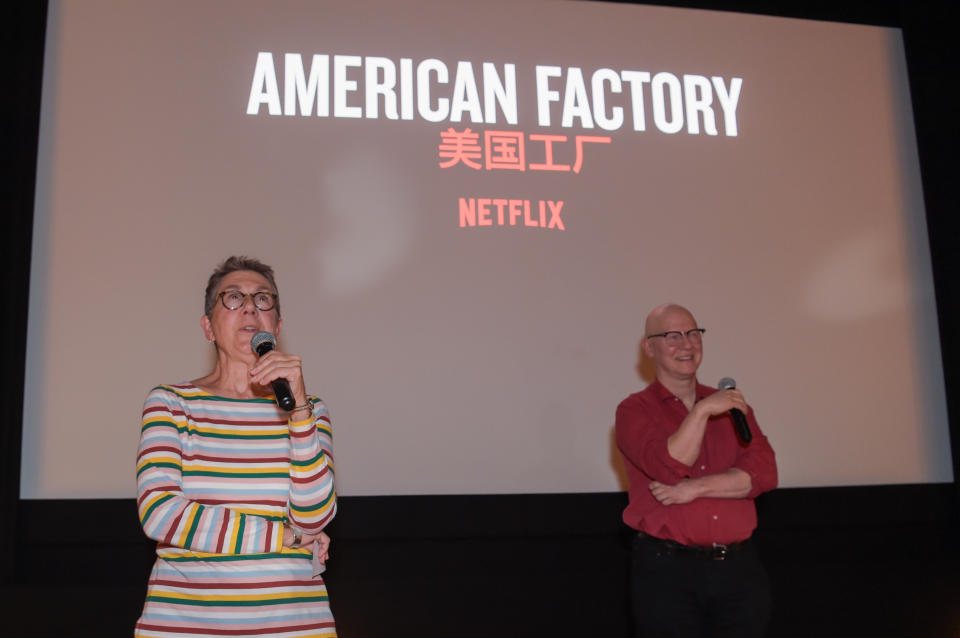
“American Factory”
When it came out, “American Factory” looked built for buzz. Released on Netflix in August, amid the 2020 Democratic presidential campaign and the U.S.-China trade war, the documentary chronicles a shuttered GM plant in Dayton, Ohio, that reopened in 2016 under the ownership of a Chinese glass-making company.
Heartland manufacturing, check. The toxic brew of culture clash and economic uncertainty, you bet. Most intriguing of all, it’s the first project released by Higher Ground, the distribution company headed by former First Lady Michelle Obama and former President Barack Obama.
Thankfully, directors Steven Bognar and Julia Reichert live up to the high expectations.
When the factory reopens, new hires exult. Many say they hadn’t had a job in years. Chinese managers who oversee the facility bond with their American counterparts, riding Harleys and shooting handguns.
But soon enough, relationships fray. Workers grow disillusioned by unsafe conditions and unachievable demands that some attribute to labor practices imported from China; eventually, American higher ups at the plant get the ax. A union drive builds momentum, and the factory hires consultants to undermine it. A climactic union vote ensues.
The movie carefully humanizes each of its subjects, challenging preconceptions but also obscuring power dynamics, say between boss and worker or immigrant and native born. But above all, we see hot-button issues manifest in the lives of workers — Chinese and American — who bear their most dire consequences.
—Max Zahn, Reporter and Producer
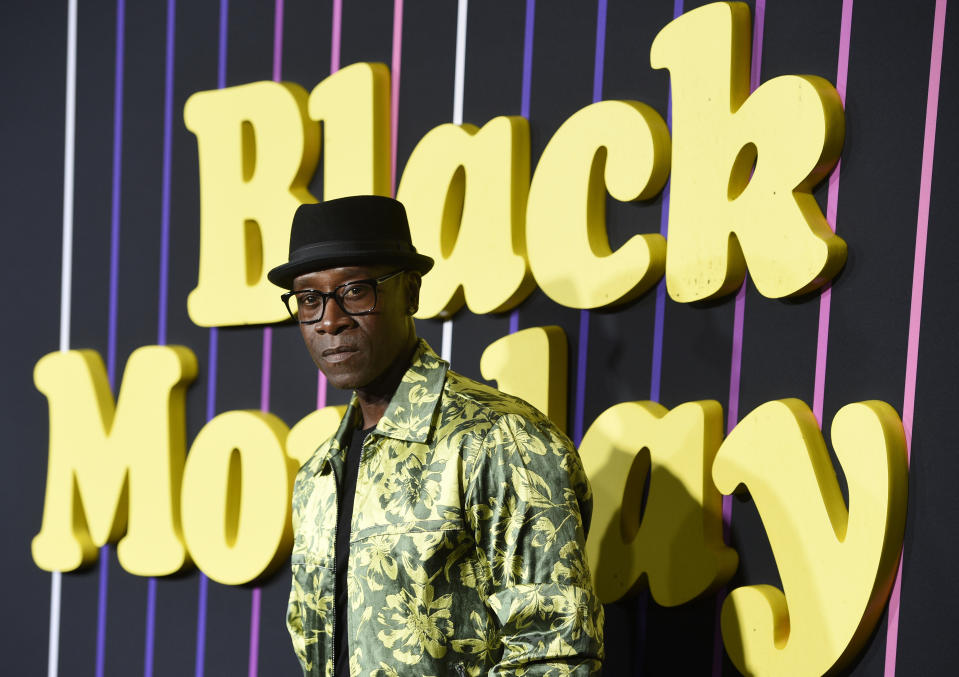
“Black Monday”
Cocaine-fueled trader Maurice Monroe (played brilliantly by Don Cheadle) will do whatever it takes — both legal and illegal — to elevate his underdog firm to the ranks of Wall Street's top-tier houses in Showtime’s TV series “Black Monday.”
Unfortunately, there isn't a whole lot for most audiences. The Wall St. audience will find themselves dwelling on all the financial inaccuracies. The Main St. audience will get lost in trying to figure out what the show's actually about: Is it about a jeans company deal? Is it about Monroe's weird relationship with his mentor Rod "the Jammer"? Is it about Andrew Rannells' character's struggle to juggle work and love? Frankly, I don't even really remember what the show is about.
All I can tell you is that there are literal Lehman brothers who are rumored to be in an incestuous relationship, and Don Cheadle is incredibly entertaining as this character. Watch one episode before you pass judgement.
—Sam Ro, Managing Editor
Read more:
Target is the Yahoo Finance 2019 Company of the Year
Why the 2010s were a decade divided
20 businesses that died in the 2010s
The biggest deals and attempted deals of the 2010s
The stock market's biggest winners and losers of the past decade
Follow Yahoo Finance on Twitter, Facebook, Instagram, Flipboard, SmartNews, LinkedIn, YouTube, and reddit.
